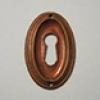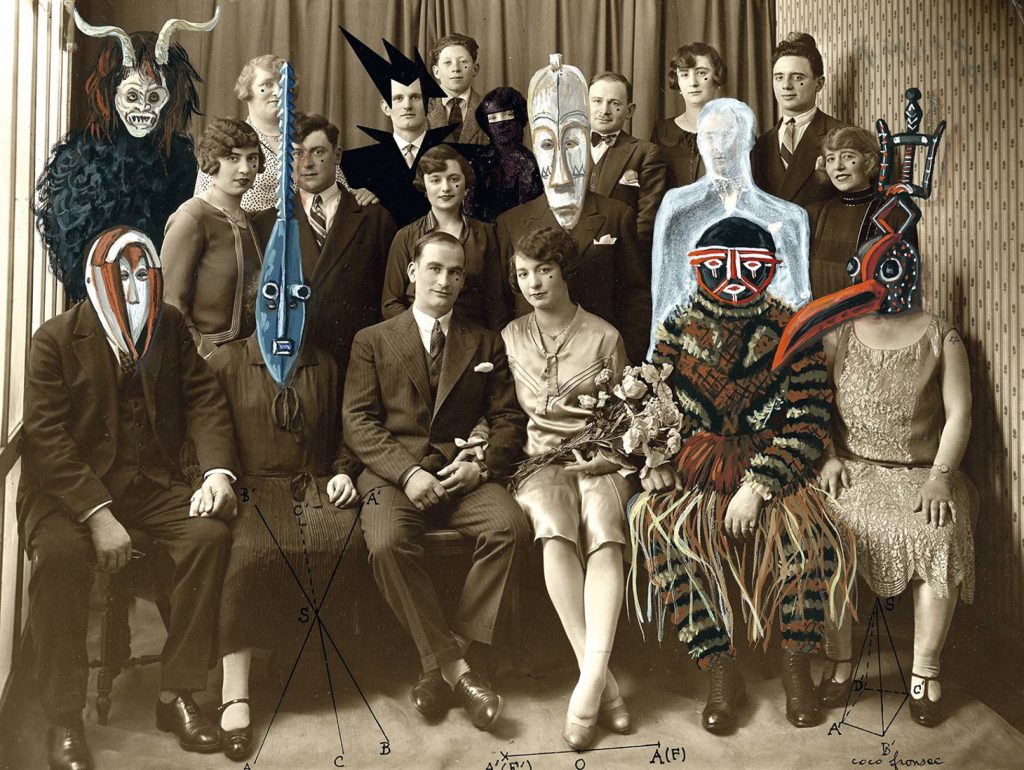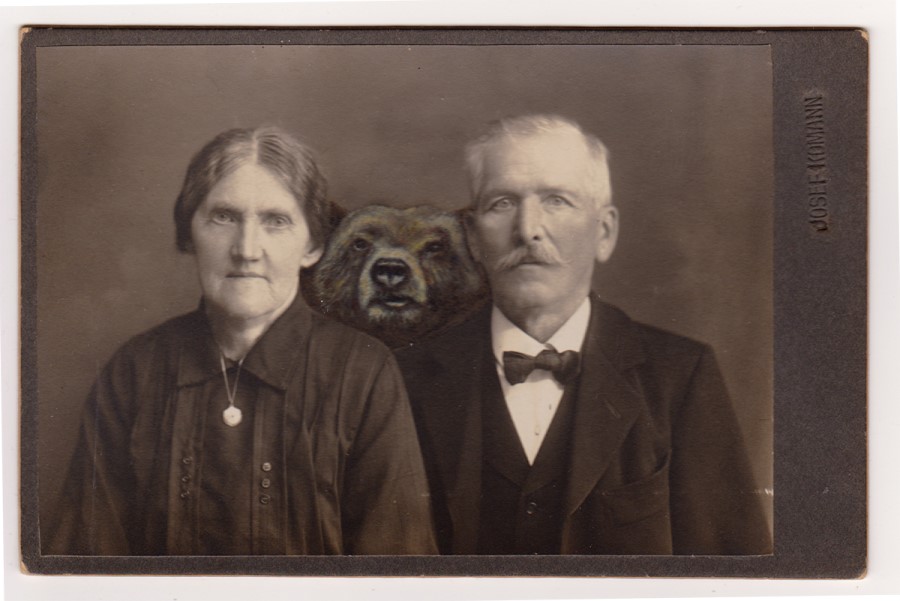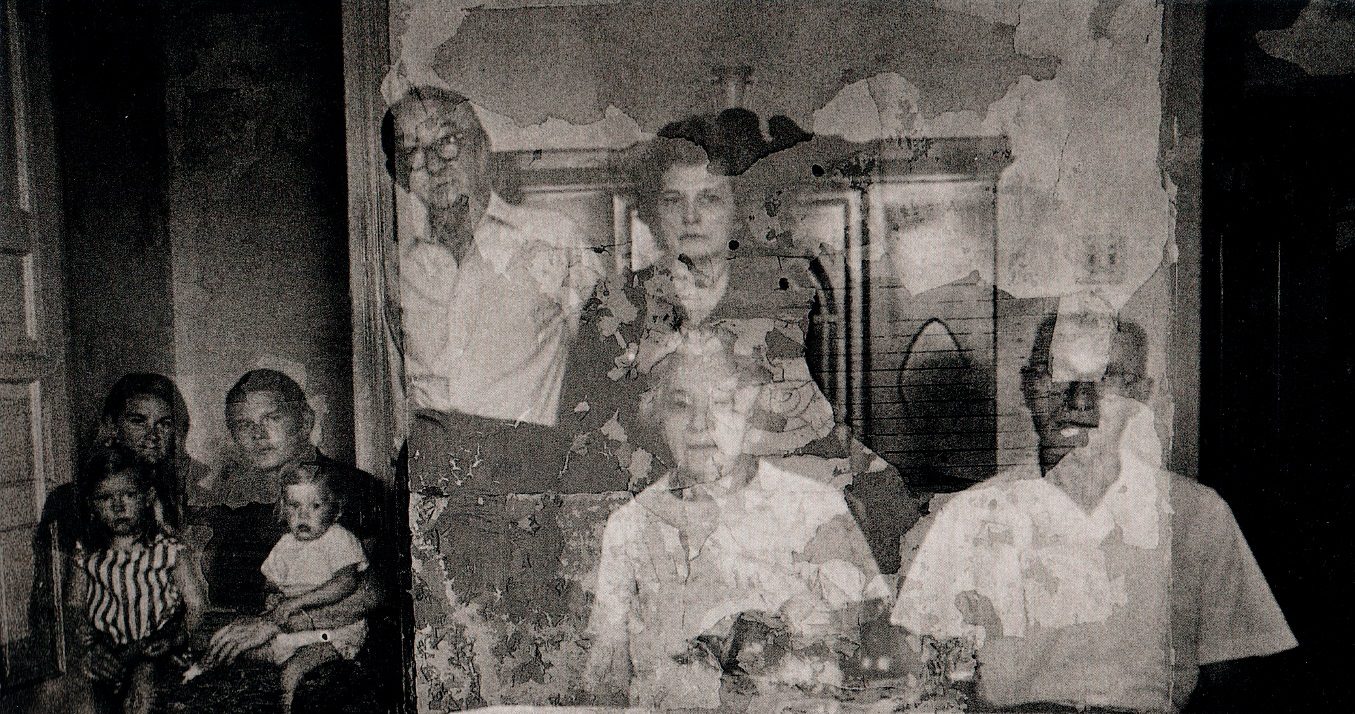
Family Stories Contest Writing(s) Foundation
 Family Stories Contest
Family Stories Contest

Coco Fronsac
A fundamental change in our era has been the general acceptance (to a certain extent) of the different shapes a family may take. Nowadays, several countries in the world acknowledge brand-new classifications, both socially and legally, especially after the legalization of same-sex marriages and the increase of single-parent families. We have changed former restrictive definitions of the term family for more inclusive and further-reaching realities. On top of the obvious transformations in the social sphere, these changes have become a starting point for a discussion on the arts and literature about what families with these new parameters have or ought to have in common. Another point is how to write or reflect about the idea of the family without those constraints that used to define broadly what fell within, and what fell outside the family context. A third point would be how the affective and emotional sensibilities play within this context. This is a bolder exercise, more demanding in the pursuit of our own lodestar.
We know it well. The four editions of this contest in Spanish already contain a record of about 2,000 stories, with a wide spectrum of emotions, circumstances, and representations. The family theme works well as a bag of tricks for the writer, to search for their initial topics, and, by finding them, they learn how to set their tone and goals. Family is a universal theme. It is a place to find answers for writers and readers alike. Whether we are writing an autobiography or pure fictional accounts, we are making an exercise of introspection. We touch upon exploratory terrain because the gravitational forces of each family point towards the fundamental topics. Still, we need to guess correctly the way to approach them to hit that target that sends into orbit the rest of the elements.
This time, we are asking you for a family story that begins with a picture that you need to upload as well. We want to stimulate you to write -who doesn’t have a good family story- but also, we would like you to share your story and rewrite it, editing it as many times as necessary. After taking into consideration your peers’ feedback from the self-managed comments area and by applying your analytical and self-criticism skills, we expect you to craft your family story. You have until December 10th to write a maximum of 1,000 words (or to upload 10 images or a video of up to 5 minutes) that will serve you to dimension your family album photo.
We would like you to take into account two ideas that are the backbone of this proposal of writing a family story inspired on a photograph.
The first one, from W.G. Sebald:
Family albums are information treasures; nobody can reconstruct a family novel better than an image.
The second one, from Sergio del Molino, from his narrator in What nobody cares about:
I have to transform my grandparents present simple into present perfect, and by doing so, I am forced to invent everything, because the present simple leaves no trace behind. I do not recreate an epoch; I create it from nothing. These supposedly family memories are the most fabulous and fictional I have ever written.
Family photographs furnish the everyday routine with a sense of solid presence (hence its theatrical aspect). Several extraordinary stories are the fruit of the pure family testimony or are inspired in family facts in which images -always open to readings, interpretations, and commentaries- were the main characters. For instance, in the merely biographical field, the French critic Serge Daney only knew his father, who was an actor, on the cinema screen; or Fernando Arrabal’s mother who trimmed and removed the writer’s father from all the family album photographs.

Jana Paleckova
We are interested in that legendary album as an image organizer. It is an unmistakable sign of the everyday iconography that defines our family structure. We want to see those photographs taken at random transformed into literature because albums have a plot, several characters, and the implied figure of a narrator who chose and organized those photographs in a particular way, by censoring them, making their own time ellipsis, or inserting pictures from different photographers/family members.
Besides, we are interested on the narrator’s attitude towards the retelling of the story. The new narrator creates a new story by manipulating those pictures and reconstructing the moment the original photographer wanted to capture. The narrator will bring this moment to the present time and then locate him/herself in that micro-story (whether as a protagonist or not). The story will use the photograph to anchor the narrator’s memories and express the substance that are the sources of his/her memory.
In a conversation we had with the writer Anelio Rodríguez Concepción, he explained the origin and development of his work:
Illustrated history of the world is the fruit of a very long learning process and self-identification that, besides personal and collective memory filters, sooner or later ought to be translated to both picture and oral or written format. […] I decided to compose it that way many years ago when, in my spare time, I began to scan all those pictures from old family albums, not only those that I had taken by myself. While I cleaned them by making use of an image processing software, I amused myself by enlarging them to examine the smallest details, even details about the underlying meaning of those human figures who allowed themselves to be portrayed. […] That way, and for several years, while every afternoon I sailed through the space framed by those pictures, while I could cohabit with those recognizable images in that space, my mind stretched and felt stimulated like the reader of a long story with neither a beginning nor an end. That introspection exercise would transcend my lumpy memory limits onto a new dimension in which the five senses interact.
Our objective is to find an image out of a picture, or a scene of a homemade movie, or even a drawing, or another object with a clear symbolic value to you. That image should contain the genesis of a good story, without falling back on clichés, whose meaning could be developed with a text, other images, videos, or music. We would like you to put the faces on Greg Sand’s photographs. Bourdieu writes in A middle-brow art: “It becomes clear that photographic practice only exists and subsists for most of the time by virtue of its family function or rather by the function conferred upon it by the family group, namely that of solemnizing and immortalizing the high points of family life, in short, of reinforcing the integration of the family group by reasserting the sense that it has both of itself and of its unity.”
Family Stories Dossier ⇒
Characteristics
This contest takes place in the Writing(s) Foundation platform, developed specifically for this type of competition, and always aiming to facilitate participation, interaction, and transparency. Contests announced by the Foundation are open: from the moment a participant decides to make public a text, the work is open for public reading, commenting, and recommending by any club guest. Subsequently, the work is also put to the vote by a sophisticated program system and under the supervision of rules developed to prevent misuse.
The call admits any entry allowed by the text editor: short stories, photography series, short films, and sound recordings. The basic requirements are a maximum of ten photographs, texts of a maximum of 1,000 words, and videos (hosted on YouTube or Vimeo) no longer than five minutes.
You must submit at least a family image (a photograph, a snapshot of a homemade video, a drawing, etc.)
Terms & conditions
1. Participation in this contest and registration in the Writing Club is free of charge. This contest is open to participants aged 16 years or over registered with the Writing(s) Club. Writers from anywhere in the world may enter. Registration is totally free of charge and does not entail any purchase commitment. It is important to register your real identity since it is the only way to ensure a one-person one-entry basis. To opt for prizes, any participant registered must facilitate their address and telephone number which, in case of doubt, will allow us to verify the identity of the participant, voter, or both and discard the work in case that the same user has been registered under different identities. Personal data are also necessary to ensure the automatic prize allocation in its different categories, that being the participant, voter, commentator, etc.
2. Participants must register with the Writing Club and upload their works in one of the suitable formats to the Family Stories call within the time limit. No work will be accepted after the deadline.
3. Every participant may submit a maximum of one work, which must be original and unpublished.
4. Participants cannot withdraw their work once the call closes. If the work includes a video, the participant must maintain it at least for one year in the platform where it was uploaded.
5. Authors whose works are selected for publication on the collective e-book waive the right to receive any monetary allowance for the royalties the book might generate.
6. The organization will not communicate with participants concerning the contest terms and conditions.
Voting system and Jury – Winners
During the voting period, all participants must score a minimum of 10 works by other participants; otherwise, the participant will not opt to any prizes or the publication in the collective e-book.
At the end of the voting period, the number of stars awarded to each work will be counted. Votes from users who did not vote the 10 works minimum will not be taken into account (the system guarantees the dropping of those votes until completing the minimum of 10 votes per user).
100 works will be preselected based on their score, and a jury will be in charge of distributing prizes according to the quality of the submissions. The Jury reserves the right to award works not included in those 100 preselected works if they consider that the quality of the texts is worth it.
Results
1. The final result of the contest and the allocation of prizes will be disclosed on [date]. Awardees will be communicated via email or telephone.
2. If the winners’ notification is returned as an invalid email or phone, the user will be disqualified.
3. Winners accept and authorize the Club to mention their names and the prizes obtained on the Writings Club website or in any other commercial, media, or publishing company that might be used by the Writing(s) Foundation to inform and make public the result of the contest. Likewise, participating works could be disseminated from the moment of submission to inform about the competition and to encourage participation.
Participants must be the rightful authors and legal owners of the texts. Should any irregularity be found, the Club will eliminate the work and ban the user from the platform.
Winners transfer their dissemination rights to Writing(s) Foundation from the moment they present the text for publication in the formats and conditions determined. This transference will not imply exclusive rights, allowing authors to disseminate their work as decided after the presentation on the contest. The right to disseminate applies worldwide, and it will apply for the maximum timespan permitted by the appropriate normative in Spain. Participants will transfer the publication rights of the chosen works to become part of a possible collective publication. This publication will have an affordable price, and its benefits will be destined to the support of activities within the Writing(s) Foundation. Any disseminations will explicitly cite the author’s name.
The organization reserves the right to withdraw from the contest any work considered in violation of the terms and conditions or reported by other users.
In relation to images and videos, the participant should be able to prove authorship or prove the right of use by the owner of the intellectual, industrial, or image rights. Explicit permission from people who appear in the photograph should be granted when necessary for its exposition or dissemination, exempting the organization of any legal responsibility.
4. Participation in the call entails the unconditional acceptance of the terms and conditions aforementioned.
Resolutions taken under unforeseen circumstances in the terms and conditions will lay solely on the contest organizer, who will resolve to the best of their ability, without any right to appeal by the participants.
5. Image and text rights will remain the authors’ despite transferring the organization the publication in the terms and conditions indicated and always citing the name of the author. Participants registering on the Foundation must use a valid email and a physical address. The automatization of the contest process requires an authentic identity and a verifiable physical address to allocate prizes.
6. Winners consent the access to their personal data (name and image) to communicate the contest result. The use of personal data will not entail any economic compensation.
7. No correspondence will be entered into from the organization side concerning the call. Due to the automated process of the Club calls, all steps are established and will be announced on the web in due course.
8. In compliance to the established law, Writing(s) Foundation informs all participants that data obtained in the microsite Writings Club will be collected by Writing(s) Foundation and Talleres de escritura Fuentetaja, or through other entities that will carry out data processing and will be accommodated to the corresponding electronic file of Writing(s) Foundation. Said data would be used to identify the participants of the Writing(s) Foundation, and also for the development of commercial campaigns (via telephone, SMS, email, and any other telematic medium), with a general or personal aim. At any time, you will be able to exercise your right of restriction, access, rectification, and cancelation of your data free of charge. To use this right, you will need to contact our Customer Service via email to info@fundacionescrituras.org
9. Participation in this contest entails the unconditional acceptance of the terms and conditions as well as the Writing(s) Foundation criteria concerning any conflict resolution.
Ethical agreement
Voters agree to comply with the Ethical agreement defined in the following link:
Ethical agreement for participants, voters, and commentators
The agreement contains fundamental concerns for the good end of the call. If you have not read it already in previous calls, it is imperative that you read them carefully now since they summarize the spirit of this Club and the basic norms of conduct that we have at heart. Disregarding this pact might exclude participants from the contest process.
REWARDS AND PRIZES
[Not decided, test period]


